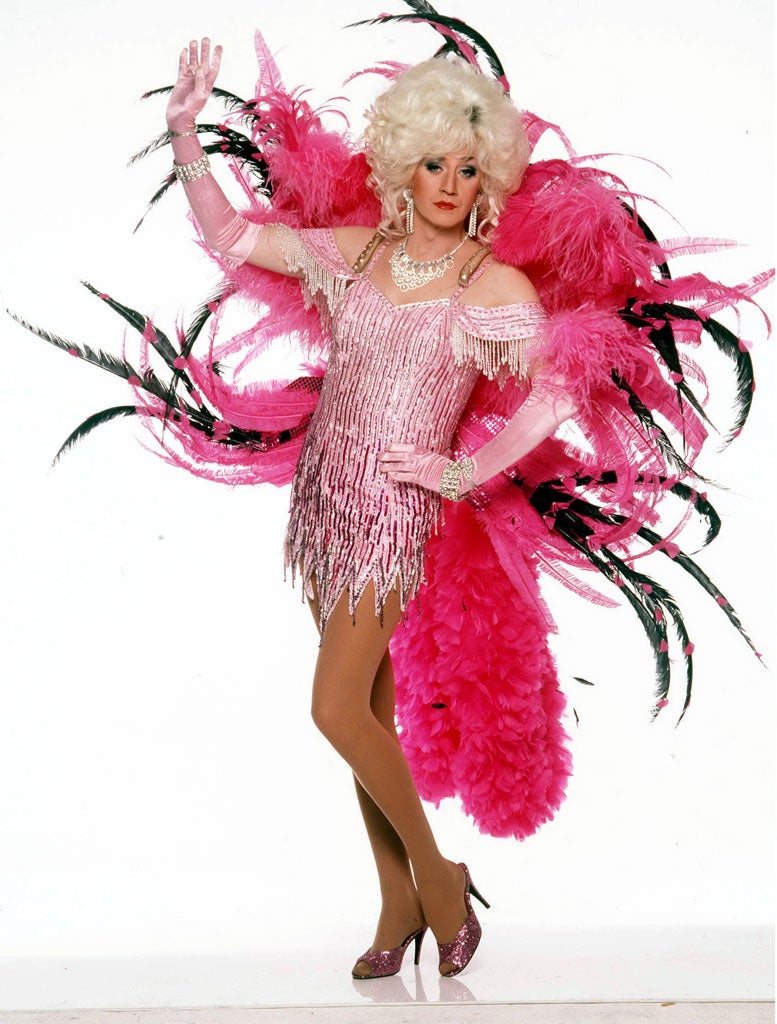Boyd Tonkin: Why (some) celebs deserve applause in print
The Week In Books

From Rod Stewart to Danny Baker, David Walliams to Cheryl Cole, the stars have fallen into print again. As celebs wheel out their latest barrowful of warmed-over anecdotes, do the book trade's autumn rites leave anything more to say? Perhaps, so long as we ignore the fabricated pseudo-books and look at those few famous faces who have a worthwhile story to tell.
Memoirs that over-perform on sales tend to come from slightly unlikely showbiz treasures who have knocked around – and been knocked around – a bit. Comedian Peter Kay is a case in point. As a corollary, such hardened stalwarts can open doors into aspects of British society that, these days, seldom intrude upon a mainstream list. Either too cool or too genteel, the novelists don't know; and the publishers don't care.
No one wrings more mileage from the paradox of celebrity than Paul O'Grady. Now a cosily mainstream chatshow host, the Birkenhead-raised entertainer has in two wittily written slices of memoir parlayed his stardom into a chance to evoke – and to celebrate – the kind of low-status upbringing now thought of as a problem for Iain Duncan Smith's in-tray. What's more, he traces his ascent from drags to riches with heart, humour, and none of the Shameless-style gurning that betrays a clown from the sticks who has sold out to the nobs.
Can his third volume of autobiography, Still Standing (Bantam, £20), pull the same trick again – as Lily Savage herself might say? For this time he revisits the Eighties, the decade through which his dragged-up alter ego – the brassy, backchatting "Blonde Bombsite" from Liverpool – rose (and he might hate this) with almost Thatcher-like grit and nous. Lily progressed from high-risk gigs at rancid, raucous and often downright lethal boozers across the North to a long-term tenure in the gay citadels of south London and, finally, the first glimmerings of small-screen fame (as a copper's nark called Roxanne in The Bill). As Lily the sequinned diva bids for glory, so Paul the peripatetic care worker for Camden council (a job observed with precision and compassion) recedes. He reaches 30, with Lily the she-who-must-be obeyed empress of the Royal Vauxhall Tavern, in love and in demand: "I had a flat, a fellah and a following".
As a narrator, stroppy of tongue but melting of heart, O'Grady still charms and tickles. The comic scenes with his truly mythological mum ("the Madame Defarge of Tranmere"; "Columbo in a flannelette nightie"; "Eleanor of Aquitaine with a chip-pan") can touch the hem of Alan Bennett's robe. From Bradford to Battersea, he takes his reader through doors that might otherwise remain closed to all but the stoutest of stomach. We glimpse the dives and dosshouses of wrecked Pennine towns, or the hard-core mayhem of the sort of licensed London bearpit where "they ate their young alive".
As a cabaret turn, Lily came through the lot, tempered to tungsten. As for Paul, in the book's most affecting passages, he endured the deadliest stage of the Aids epidemic. Friend after friend departed as "death became a way of life". "Working the Vauxhall was akin to entertaining the troops at the front". As a testament to a time of unique suffering, and solidarity, this scurrilous routine by an old-school drag queen – the sort of outcast throwback despised by many then – leaves most fiction and history of the era in the dust. We need more such sawdust (not stardust) memories.
There is, beyond the farce and pathos, true courage here. Along with some "lousy old gags". For this respectable organ, I'm going to redact a little. Lily joins a convent: the silent order of the Flagellated Flesh of St Philomena in Wigan. The novice nuns may address just two words every year to Mother Superior. After one year, Sister Lily says, "Damp beds". After two, "Lousy food". After three, "I quit". "'Thank [Mitchell] for that,' Mother Superior replied. 'You've done nothing but [Mitchelling] moan since you got here'."
Casting calls for Cromwell: who will wolf it?
Who would make the perfect Thomas Cromwell, on screen or stage? In the wake of Hilary Mantel's double Man Booker victory, Tudor Cromwellians can look forward to forthcoming incarnations of her hypnotic fixer both on television (a BBC 2 series scripted by Peter Straughan) and - if a company (possibly the RSC) opts to produce Mike Poulton's dramatised version - in the theatre as well. Ray Winstone might be a hoot, but my groatsworth would go on - well, how about Simon Russell Beale, or Toby Jones?
Stooge or hero? More Mo please
According to a leaked memo, China's censorship agency sees the Nobel prize awarded to novelist Mo Yan as more of a threat than an honour. It seeks to steer online debate to avoid "comments which disgrace the party and the government", along with mentions of Nobel laureates Liu Xiaobo and Gao Xingjian - both dissidents, one in jail and the other in exile. Fairly or not, expat authors in China's democracy movement have tended to judge Mo - a vice-president of the national writers' union - as a stooge of the Communist Party. Liao Yiwu, accepting a prize at the Frankfurt Book Fair, called Mo's Nobel "a slap in the face". Over here, more readers might be able to form a judgment on Mo's conformity or courage if they read him. Some translations are available - but we need more, above all Frogs: his far from emollient novel about the traumatic outcomes of the "one-child" policy in China.
Join our commenting forum
Join thought-provoking conversations, follow other Independent readers and see their replies
Comments
Bookmark popover
Removed from bookmarks